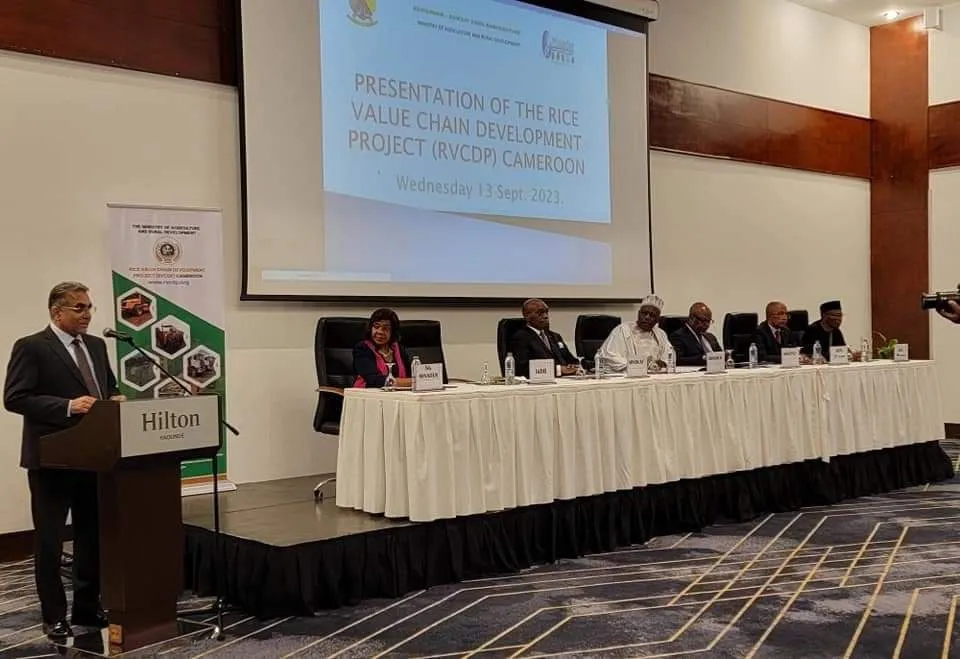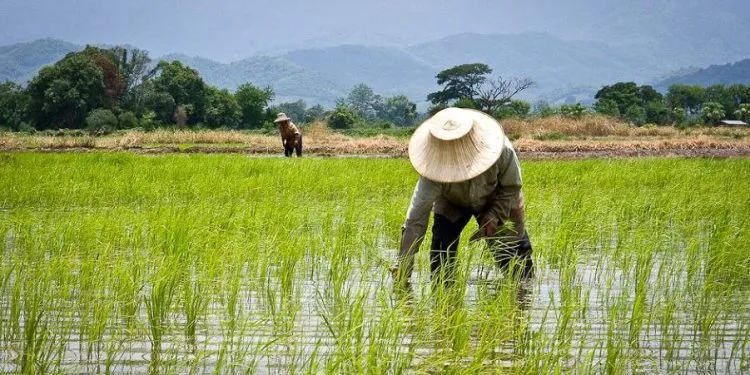The Cameroon Government, supported by several international partners, has launched project costing 203.9 million Euros (approximately FCFA 133.7 billion) aimed to boost rice production in the country for the next five years.
The Rice Value Chain Development Project (RVCDP) was launched in Yaounde on September 13 by the Minister of Agriculture and Rural Development, Gabriel Mbairobe.
The project is expected to raise Cameroon’s rice production to 750,000 tonnes by 2030 and curtail the country’s heavy reliance on imports.

Cameroon imported nearly 400,000 tonnes of rice in 2022, with rice imports alone constituting 5 percent of total imports in 2021, according to the National Institute of Statistics (INS).
The RVCDP, stakeholders say, will reverse this trend in the near future. The project’s coordinator, Muluh Gregory Nguh, said the project will increase Cameroon’s rice production by 10% and create approximately 250,000 jobs. It will be implemented in the North West, West and Far North Regions.
Minister Gabriel Mbairobe said the project matches with the government’s vision of food sustainability and security, youth and women employment, economic growth and poverty reduction.
Minister Mbairobe said the project will train 200,000 farmers nationwide and will focus on increasing irrigated land, construction of social infrastructures, water points, water systems, ware houses, health centres and schools.
The RVCDP is sponsored by seven partners, including the Cameroon Government, with the Islamic Development Bank being the chief sponsor. The bank will be investing 79 million Euros (FCFA 51.8 billion).
Several government officials attended the project’s launching in Yaounde. Among them were: the Minister Delegate to the Ministry of Economy, Planning and Regional Development; the Minister of State Property, Surveys and Land Tenure; the Minister Delegate at the Presidency in charge of Public Contracts; the Head of Operations at the Islamic Development Bank; the Governor of the North West Region (Vice-President of the Steering Committee); the Governor of the Centre Region; a delegation from BADEA; administrative dignitaries; and stakeholders in the rice value chain.
By Tata Mbunwe



